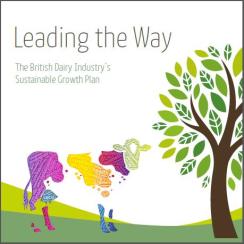Blog Archives
Is the government export drive a good approach? Is its levy board, DairyCo, working in the best interests of the food producers compelled to fund it?
Posted by admin
The ‘elephant in the room’ very few ever mention: unfair trade prices – though we hear that when the new Shadow Minister for Farming and Food is confirmed in post, one of his/her first tasks will be to look into the urgent need for farmers to get a fair deal for their milk.
 ‘Collapsing food prices’ were reported in the Telegraph -September, according to the FAO’s Food Price Index, which tracks wholesale prices of key foods. This is bad news for British farmers, many of whom are already being paid near or below production cost, which could force many to increase levels of borrowing this winter – or go out of business.
‘Collapsing food prices’ were reported in the Telegraph -September, according to the FAO’s Food Price Index, which tracks wholesale prices of key foods. This is bad news for British farmers, many of whom are already being paid near or below production cost, which could force many to increase levels of borrowing this winter – or go out of business.
However, this basic cause of farming problems is ignored by vested interest dominated media and politicians, who point to energy prices, the need to export and global food oversupply – all less important factors than the farmgate price of food, to those producing for the domestic market.
A year after the 2013 dissatisfaction reported in the press, milk producers were asking for their levy money, imposed by law on dairy farmers, which funds almost all of the activities of DairyCo/AHDB, a body set up by government, to be used to provide information and resources to help support their businesses. This call is coming again, from several quarters.
Would AHDB Dairy pass a school-type inspection?
 The Tenant Farmers’ Association (TFA) have issued a press release headed “Dairy Sector needs much improved levy board”, challenging the performance of AHDB Dairy (aka DairyCo) asking how it delivers value for money with the £7 million of farmers’ money given each year. This followed a recent meeting in which the TFA commented “if this was a school inspection our findings would be that AHDB Dairy required improvement and in areas was inadequate. We need to see a much improved board as soon as possible.” The full press release is interesting, click on
The Tenant Farmers’ Association (TFA) have issued a press release headed “Dairy Sector needs much improved levy board”, challenging the performance of AHDB Dairy (aka DairyCo) asking how it delivers value for money with the £7 million of farmers’ money given each year. This followed a recent meeting in which the TFA commented “if this was a school inspection our findings would be that AHDB Dairy required improvement and in areas was inadequate. We need to see a much improved board as soon as possible.” The full press release is interesting, click on
http://www.tfa.org.uk/tfa-media-release-no-26-dairy-sector-needs-much-improved-levy-board/
“The Board must be properly accountable to the dairy farmers who pay it not Government Ministers,” said TFA National Chairman Stephen Wyrill.
A ‘high-profile figure, quota broker and industry commentator’, Ian Potter, wrote that discontent among farmers over DairyCo had been brewing for months. In an Ian Potter Associates e-newsletter, he said emails from levy payers had been “flooding in” complaining about how their money was being spent, adding that all except one had called for “a change of direction and/or much more accountability”. DairyCo, which, Mr Potter recently noted, has received more than £1 million extra as a result of the increase in production, has already had AND SPENT the extra money. He asks: “But on what? Cynics say it spends the money on encouraging more production because that generates more levy money for it…and so on!”
Ian Potter states: “In my opinion we now need a campaign to promote the buying of British dairy products using British milk” – but DairyCo told the Radio 4 Farming Today Programme on the 13th August that it can’t promote British dairy products.
He ends: “I think farmers will want to know exactly why that is. I have heard one Tesco farmer would prefer to give his levy to Tesco if he could to help it promote British milk. That makes sense to me if DairyCo won’t!”
The NFU
 A farmer sent a link to a 2014 Farming Online article criticising the NFU and added the comment: “the NFU support big business too readily”. In it, farmer Guy Watson accused the country’s largest farm union of forming an “unholy alliance” with agrochemical manufacturers, and failing all but a small minority of large farmers, in a blog post and newsletter sent out in November. He said that he was increasingly alienated by the NFU’s ‘self-righteous lobbying for the short term interests of a small number of largescale farmers and their resistance to even the tamest environmental regulation, to public access to land and to any redirection of farming subsidies to encourage younger, smaller scale entrants to the industry’.
A farmer sent a link to a 2014 Farming Online article criticising the NFU and added the comment: “the NFU support big business too readily”. In it, farmer Guy Watson accused the country’s largest farm union of forming an “unholy alliance” with agrochemical manufacturers, and failing all but a small minority of large farmers, in a blog post and newsletter sent out in November. He said that he was increasingly alienated by the NFU’s ‘self-righteous lobbying for the short term interests of a small number of largescale farmers and their resistance to even the tamest environmental regulation, to public access to land and to any redirection of farming subsidies to encourage younger, smaller scale entrants to the industry’.
A Lancashire dairy farmer writes, “I have just come across this 2014 report, ‘Leading the Way’, among all the Dairyco info I have collected and to me it highlights all that is going wrong in our British Dairy Industry”.
 This simplistic ‘Leading the Way’ report – amazingly lacking in substance – is available for download here. It states that an estimated 2.5% annual growth in global demand for dairy products over the next ten years will boost UK dairy production through increased exports and imports substitution.
This simplistic ‘Leading the Way’ report – amazingly lacking in substance – is available for download here. It states that an estimated 2.5% annual growth in global demand for dairy products over the next ten years will boost UK dairy production through increased exports and imports substitution.
Farming minister, George Eustice MP, said: There is huge potential for our dairy producers with growing international demand and a global reputation that is second to none. The government wants to support growth in the industry and ensure that we can both displace more imports and expand our exports.”
So as the call for fair trade prices is ignored and food imports – often of questionable quality – rise, government ministers, DairyCo and the NFU advise hardworking farmers to risk placing their ‘commodities’ on the global market so that internet-bound speculators can ‘make a killing’.
–
Note next week, Northern Ireland food producers and politicians meet
Accomplished farmer-negotiator, William Taylor, sends news of a meeting next week. One politician from each political party, including Independents, has been invited to come along, give their views on beef, cereals, lamb, milk, pigs, potatoes, poultry, vegetables, followed by a question and answer session.
This meeting will concluded with an explanation of the blueprint for Northern Ireland agriculture proposed by the above supporting farm organisations, which if put into legislation by Stormont would return Northern Ireland farmers a minimum of the cost of production plus a margin inflation linked across the staples and turn Northern Ireland from austerity and crisis to prudent prosperity.
–
Posted in Conflict of interest, Corporate political nexus, Economy, Media, Vested interests
Tags: AHDB Dairy, commodities market, DairyCo, displace imports, expand exports, FAO’s Food Price Index, farmer Guy Watson, George Eustice MP, Ian Potter, NFU, Northern Ireland, Tenant Farmers Association, Tesco, William Taylor
